- How I became a customer of, and then an ex-customer, of a password/security startup, PassCamp
- What happened (or didn’t happen) at PassCamp that lead to their demise
- What they could have done differently to (potentially) avoid their fate
- Lessons to takeaway in what they did well for sunsetting a product
Most businesses fail. Of the businesses that do, almost all of them fail in obscurity.
It’s rare to find a founder willing to talk about large-scale failure, and there’s thousands of willing, anonymous armchair experts waiting to analyse what went wrong.
Ironically, I am one such armchair expert, albeit not anonymous.
In May of 2019 I paid $30 for lifetime access to PassCamp, a password management service via a deal on AppSumo. This was before a clear market leader in password managers had established themselves, and PassCamp seemed as good as any other option. Plus it was $30, what is there to complain about?
Four years later, after almost absolute silence in the intervening years (during which I was perfectly satisfied with the service), I got an email with the subject line Important: PassCamp is closing.
Prior to that, the only three emails I’d ever received were verifying my account, welcoming me to the service, and letting me know PassCamp was now available as an app.
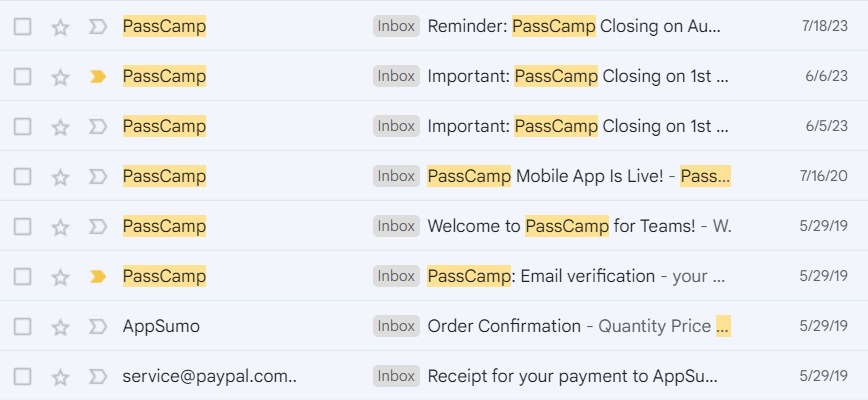
Above: Literally every email I ever received from PassCamp.
So what went wrong? Why was it closing? Damn, I need to start paying a subscription now.
The only reason given was “we were unable to achieve the results we expected.”
They don’t appear to have ever taken investment, they have a decent amount of positive reviews on software review sites, and they claimed to have the first mover advantage as “the only password manager that was built specifically for teams, from day one”.

Launching in 2019, PassCamp was well positioned to become a major player.
Where did it all go wrong?
Big launch, no follow up
Some of the biggest criticisms in the reviews of PassCamp is that it just didn’t keep up with new feature releases as fast as its competitors.
Reviews asked for more sophisticated features that were more on par with market leading products like detecting if your information has been part of a data breach.
No customer engagement
Once you’ve got a customer, that’s not the end of the journey for them. Receiving six emails over four years, where two were welcome emails and three were the announcement and reminders that they were closing, is poor form.
Over that time, the PassCamp team was producing content such as blogs, but they weren’t engaging their customers at all.
Not exploring new market segments
The lack of sophisticated features could have been the selling point for people who really didn’t need a lot.
Think about the last time you helped a parent or grandparent with their passwords – maybe a no fuss password manager that didn’t save their banking details or credit cards might have actually been a good solution for them.
Focusing on features, not value propositions
Here’s probably the biggest reason they were unable to reach their desired results. Their website and marketing tells me what a password manager is, and tells me I should have one, but it doesn’t really sell me on why, or why they’re unique and I should select them out of all the options on the market.
The reason the basics are so often repeated in advice columns is because you really should follow them. Understanding your target market, highlighting values not features, and differentiation will take you far.
Taking a look at PassCamp’s website navigation and comparing it to a competitor’s, 1Password, this becomes extremely evident. All we’re looking at is words in a menu, but the difference is stark. 1Password presents us first with who this product is for – personal, business, enterprise, and developers – followed by recent features and their value propositions.
Single sign on is giving us more security, passkeys are making our experience faster, and customisation gives a greater level of control. There’s a lot here, but it’s not overwhelming, and if we really do want to dive into the features, there’s a button to do so.
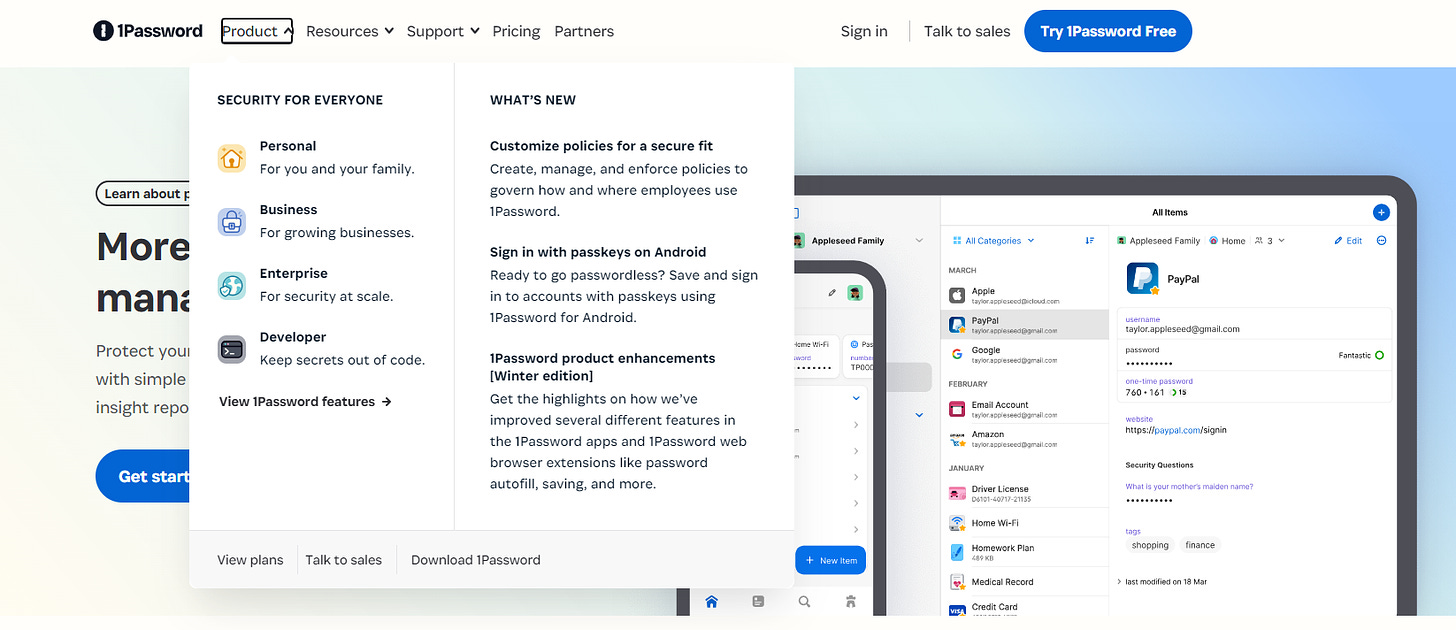
PassCamp, on the other hand, gives us a list of features. Instead of an overview, it feels like a chore of having to click into each one. Furthermore, looking at the list feels kind of “ok, so what?”
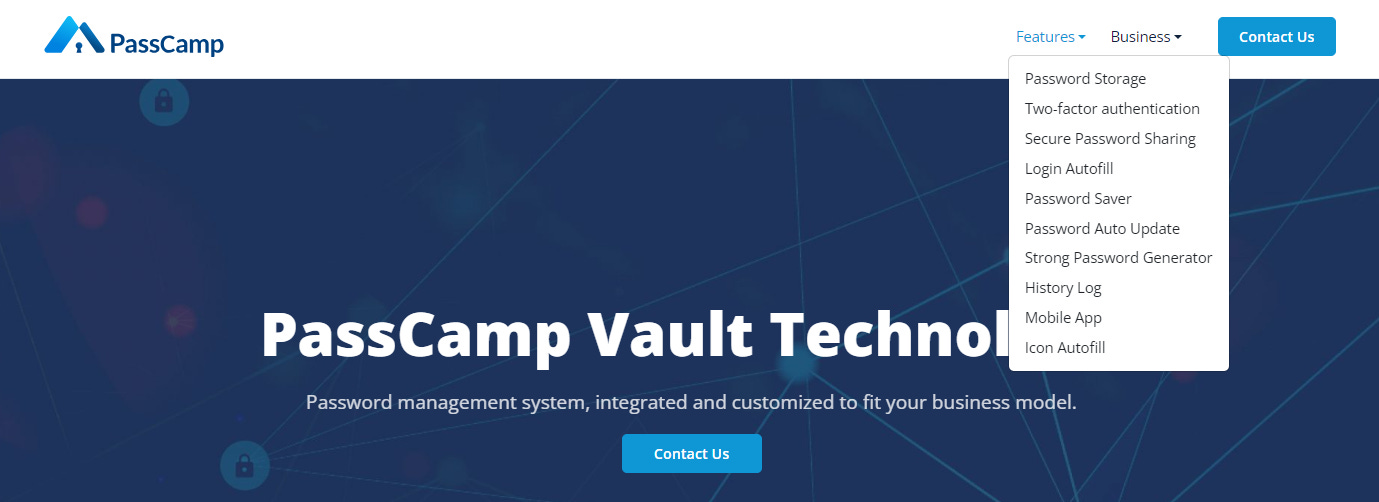
These are features every password manager should have, they’re what the tech industry would call “permission to play” features. They’re foundations you’re expected to have, and without them you wouldn’t be able to call yourself a “password manager”.
1Password doesn’t even mention them. They’re obvious. “Of course we have that. But we also have so much more,” is what their menu is saying. There’s nothing here that’s high budget or high resource, just a little extra care and attention.
Four months before announcing PassCamp would be closing, they posted on their blog another announcement. RememBear, a competitor, would be closing.
The blog stated “PassCamp is probably the best RememBear alternative that exceeds users’ expectations and is painless to switch to.”
Whether it was foreshadowing or a miss-read of the room, RememBear’s closing at least gave PassCamp a playbook for how to shut down a service.
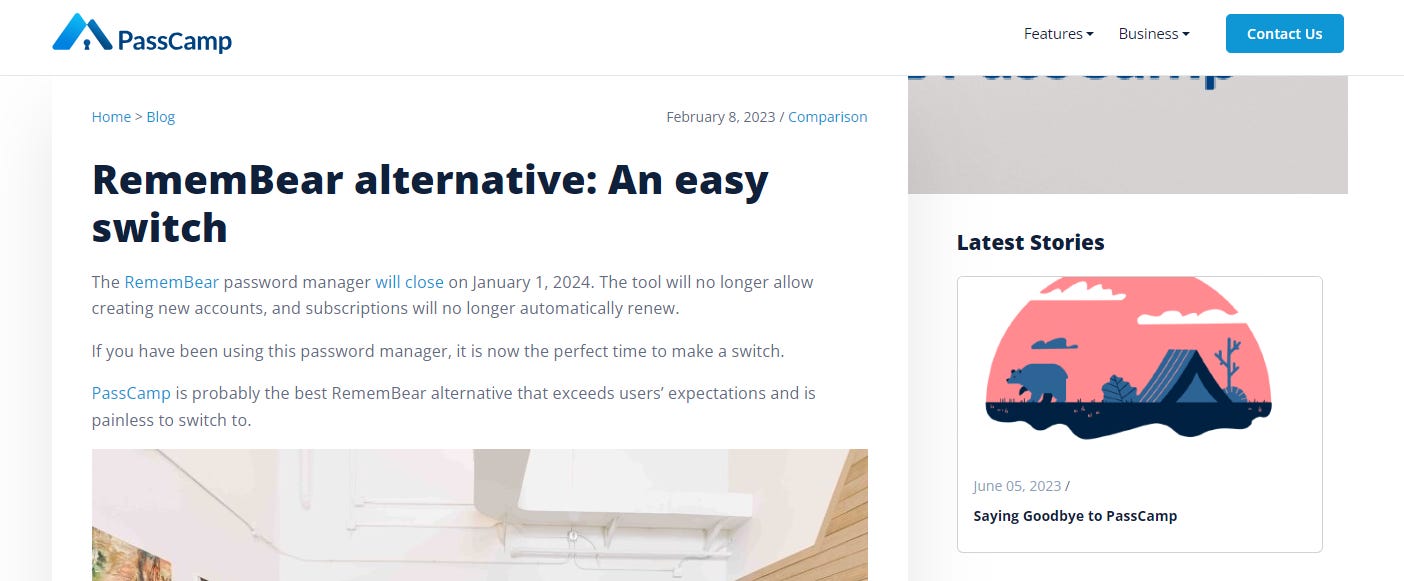
The irony of the latest blog being “Saying Goodbye to PassCamp”
As part of closing the service, PassCamp offered a deal with NordPass, another market leading competitor. PassCamp customers would receive three months for free if they switched over, and a guide on how to migrate your data from PassCamp to NordPass was included.
This is standard practice for sunsetting a product. Offer a recommendation on which product to switch to, broker a deal for your customers, and assist with the transition to ensure your customers remember you fondly instead of angrily.
The hazy origins of PassCamp
Based on comment threads found on ProductHunt and AppSumo, the history I was able to gather is that PassCamp was an internal product built by an agency (Adeo Web) to share passwords with their clients, which they spun out as its own company.
On ProductHunt, an Arvydas Vaitkus was listed as the “maker”, while Paulius Nagys was CEO and co-founder. There was also a UX designer, Erika Kazlauskienė who was listed as a co-founder but they don’t seem to have done any publicly facing talks or engagements as “co-founder”.
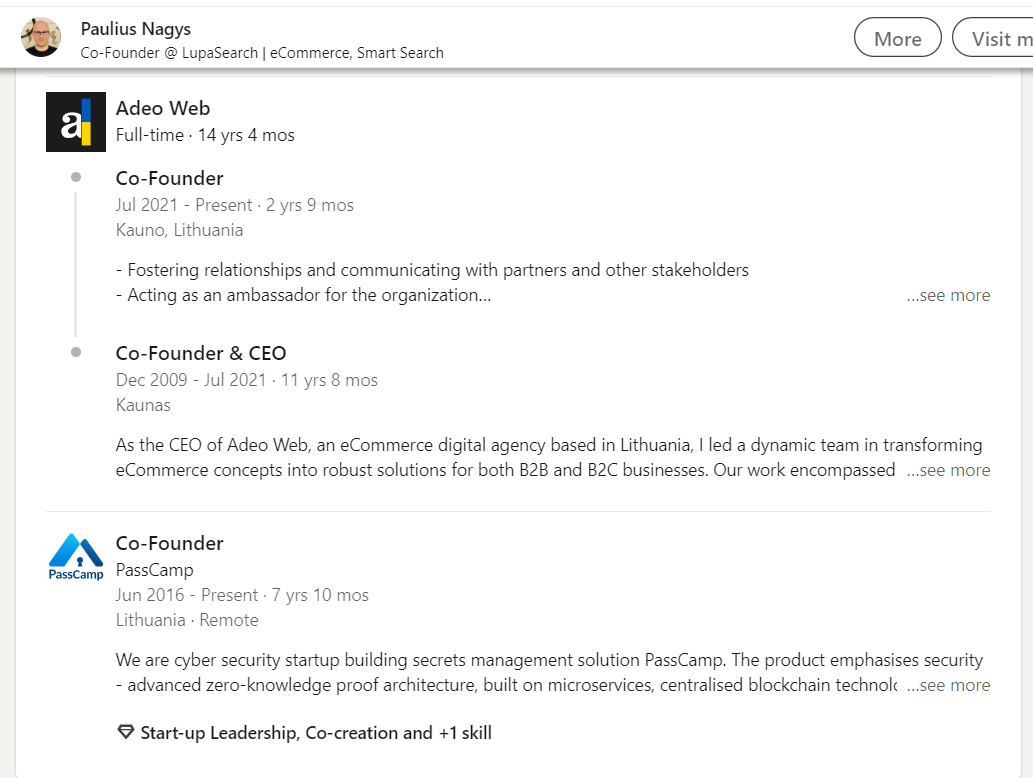

I’ve reached out via the official support email, and LinkedIn profiles of the co-founders to ask if they’d be willing to share any lessons from the other side. Despite multiple attempts to reach them, I never heard back.
I wonder if being an internal product spin out had anything to do with PassCamp closing. Were they split between agency and product work, and ultimately unable to give it the time or attention it needed to grow?
I guess we’ll never know. Everyone involved with PassCamp seems to have moved on with other things, and have made no public statements that I can find.
- Kayla Medica is the author of Mehdeeka, a B2B marketing newsletter, and columnist at Startup Daily.




















Trending
Daily startup news and insights, delivered to your inbox.